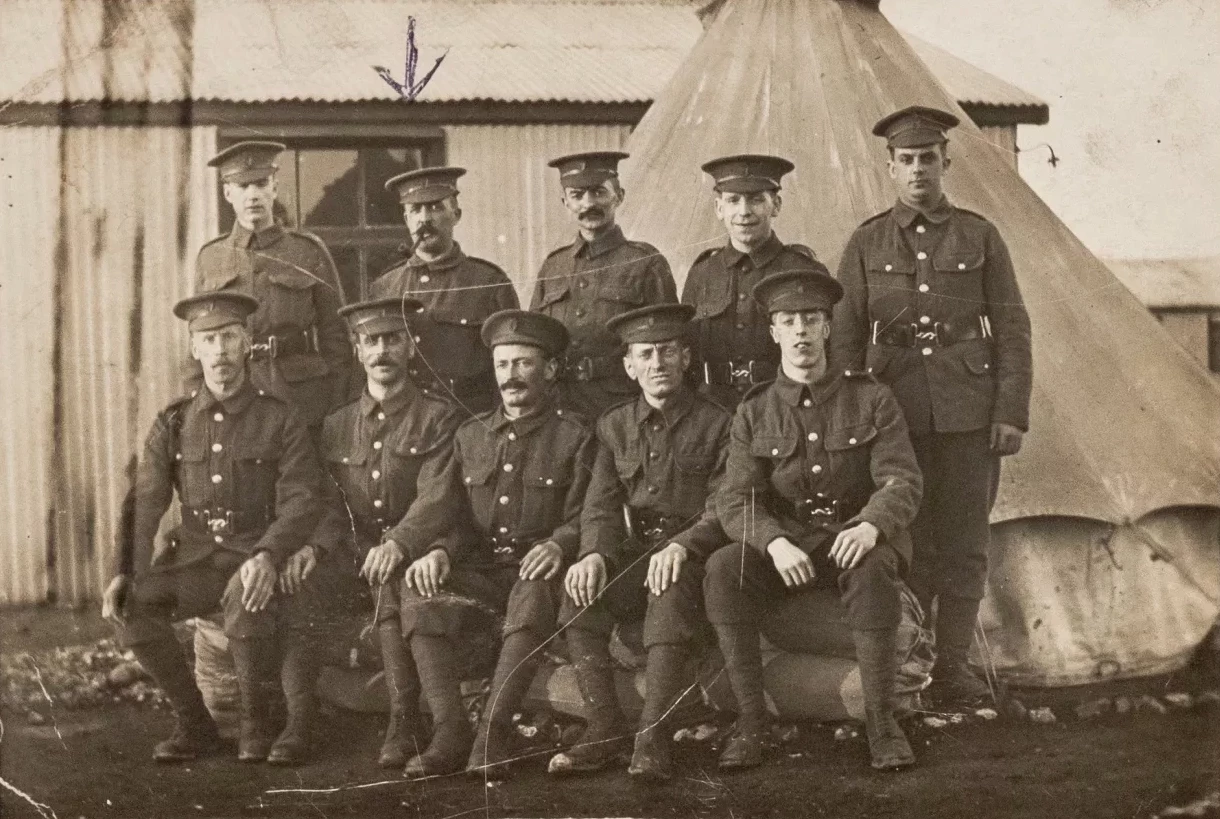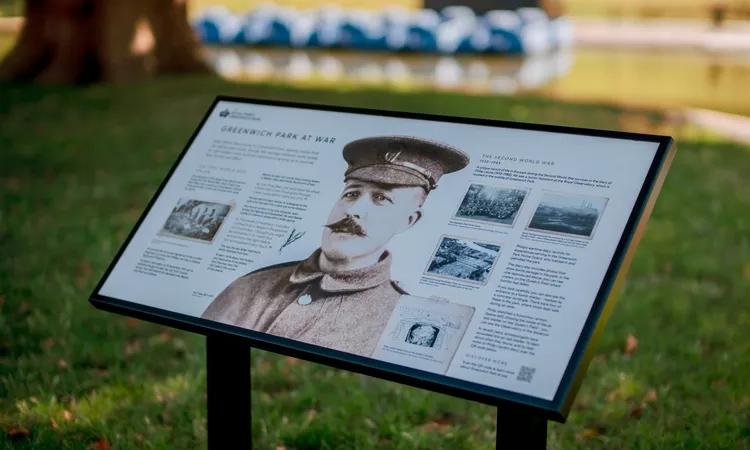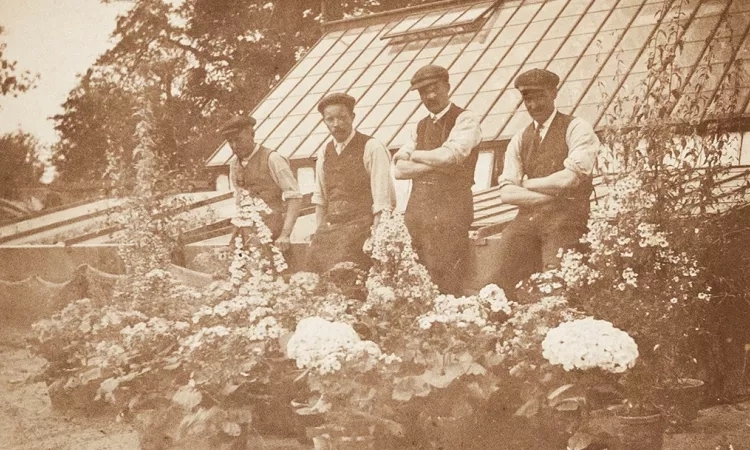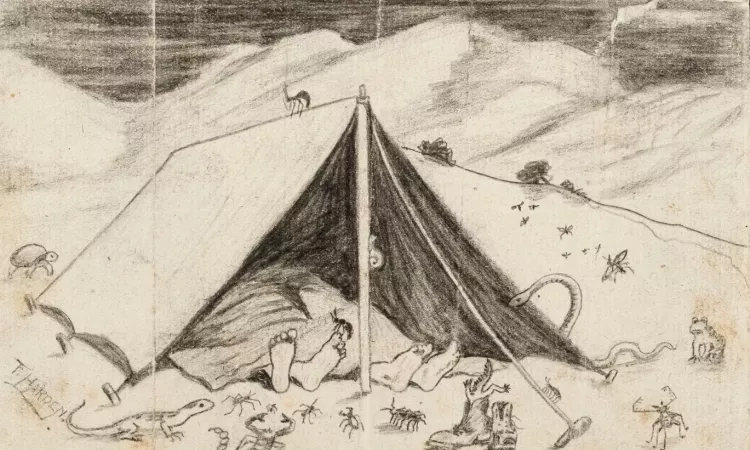Hori the Soldier
Hori’s letters home described the huge physical and emotional toll of war.

Privations
As an older soldier, Hori found the lack of home comforts very difficult. For much of his time in the Middle East, water was rationed to a quart (two pints) a day. This was needed for drinking and left nothing for washing. Hori had only one uniform and lived in it.
Not being able to wash regularly upset Hori and he took advantage of any chance to swim. On arrival in Egypt, Hori spent time by the Great Bitter Lake (near to the Suez Canal) and told Bessie:
'Where I am at present is a delightful spot for although the camp is just a heap of sand there is plenty of water close and a lovely lake for bathing (salt water) where we have the privilege of going almost daily. I don’t know how long we are likely to be here. It is certainly too good to last.'
Hunger
Food was in short supply and Hori lost weight very quickly. In an early letter, he writes:
'I did 18 miles the other day on 5 small dry biscuits.'
In April 1917, he wrote from Salonika:
'Breakfast is at half past three (in the morning) and consists of a lump of very fat bacon, a piece of bread and ¾ pint of tea and we get no more for 8 hours. Tea is the best meal of the day and consists of bread and jam and ¾ pint tea. This is the only liquid we get to drink besides water.'
Listen
Hori's great-granddaughter, Sarah Gooch, discusses some of the difficulties he faced
Some of them who were firing rifles would just be lying on the ground for ten hours firing a rifle, which would be very hot and they had one set of clothing which would be soaked in sweat, and at night they would be really freezing cold because they had nothing else to change into. There’s one little detail in that that I loved, which is where he talks about carrying some sticks down his back and fighting with them down his back – and he sort of carried those over a distance of about sixty miles in the hope that he would manage to make himself a cup of tea. I just really hope he did, and I hope that cup of tea tasted marvellous!
Broken sleep
Whilst camped in the desert in August, Hori described his sleeping conditions:
'You ought to see my bedroom. It is just a nick cut in the Desert, about two feet deep, six feet long and 3ft wide. I just roll myself in my one blanket and lay in this hole and am pretty soon sound asleep.
The reason for sleeping in these slits is because if any Iron rations (shell fire) should come over when we are asleep and (this is no uncommon thing) unless it actually drops in the hole or very close to it, not much damage would be done.'
Battle
Some of Hori’s descriptions of battle paint a very bleak picture of war. In November, he wrote:
'One need never be afraid of Hell after what I have gone through. I never expected to come out of it but here I am quite sound, but almost beat.'
And in early December 1917, shortly before he died, he told Bessie:
'I am going over the top again tomorrow and it is not a very cheerful thing to look forward to.'

In the same letter, he goes on to describe another battle:
'We had to hang onto it with our eyebrows. Talk about Hell, it is a picnic to it. However anyone came out of it alive is a marvel, but we stuck it and are still holding it.'

Related Articles
-
 Read
ReadHori's Legacy
See how The Royal Parks are honouring Hori's legacy.
-
 Read
ReadHori and Greenwich Park
Discover the camaraderie and respect shared among Royal Parks staff during wartime.
-
 Read
ReadHori and Nature
Hori's reflections on nature amid the backdrop of WWI.